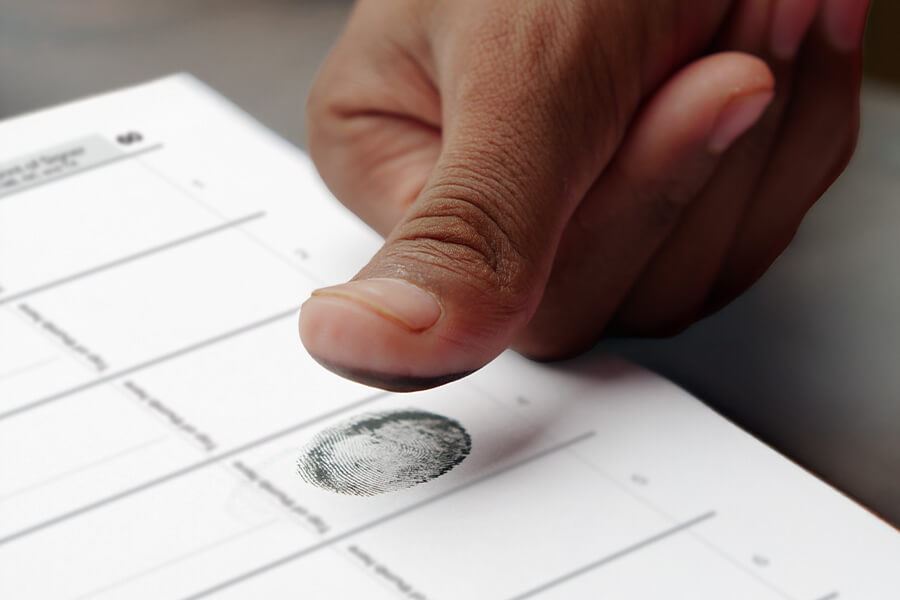
Should a Notary ask a signer to leave a thumbprint in the Notary’s journal entry? While in the past this was a common practice to deter fraud, privacy concerns surrounding the collection of biometric data such as thumbprints have arisen over the years, and some states have changed their laws as a result.
Below are answers to 3 commonly asked questions about state laws and guidelines for requesting signer thumbprints.
Which states require Notaries to obtain a journal thumbprint?
Only one state — California — requires its Notaries to obtain a signer's thumbprint for journal entries, and only for notarizations involving specific documents: Powers of attorney, deeds, quitclaim deeds, deeds of trust, or other documents affecting real property. California Notaries must obtain journal thumbprints for these documents, but they should not request a thumbprint when notarizing signatures on other documents (see “What are the guidelines Notaries should follow for signer thumbprint requests?” below).
Are there states that prohibit Notaries from asking signers for a journal thumbprint?
Yes. The following states prohibit Notaries from recording an individual’s biometric identifiers, including thumbprints and fingerprints, in a journal of notarial acts:
- Illinois (Ill. Admin. Code Section 176.910 c))
- North Carolina (N.C. Admin. Code Title 18, Rules 07I .0105, .0106 — only the Notary may "make" entries in the journal except for certain specified individuals who sign the journal)
- Texas (Tex. Admin. Code Title 1, Section 87.50[a][3])
What are the guidelines Notaries should follow for signer thumbprint requests?
In light of increasing identity theft and growing public concern over the protection of personally identifiable information, the NNA recommends that Notaries not ask individuals for a journal thumbprint unless it is specifically required for the notarization.
For California Notaries, because a document “affecting real property” may not be obvious from its title and could be hidden within the text (for example, a living trust or will that bequeaths property), California Notaries may ask the signer if the document affects real property or skim the document for any indication. When in doubt, the Notary should obtain a journal thumbprint and note the reason in the journal. Notaries in all other states, or in California when a notarial act clearly does not require a journal thumbprint, may not refuse a notarization solely because a signer declines to provide one.
Georgia’s Notary handbook specifically states this: “Since Georgia does not require a signer to provide a thumbprint, you cannot decline to notarize solely because your signer refuses to provide a thumbprint.”
Many Notaries choose to collect journal thumbprints to protect themselves from fraud. This concern is understandable because of the rise in seller impersonation deed fraud and the potential financial liability Notaries can incur for notarizations they perform. However, Notaries should be aware that state and federal laws regulating biometric data, including thumbprints, may exist outside of Notary statutes and rules and yet still apply to their work. Those who choose to request thumbprints must research, know, and comply with all applicable biometric data laws. Information about your state’s thumbprint requirements can be found for free online in the U.S. Notary Reference Manual. NNA members can also contact the NNA Notary Hotline for help if you have questions about journal thumbprints.
David Thun is the Editorial Manager at the National Notary Association.